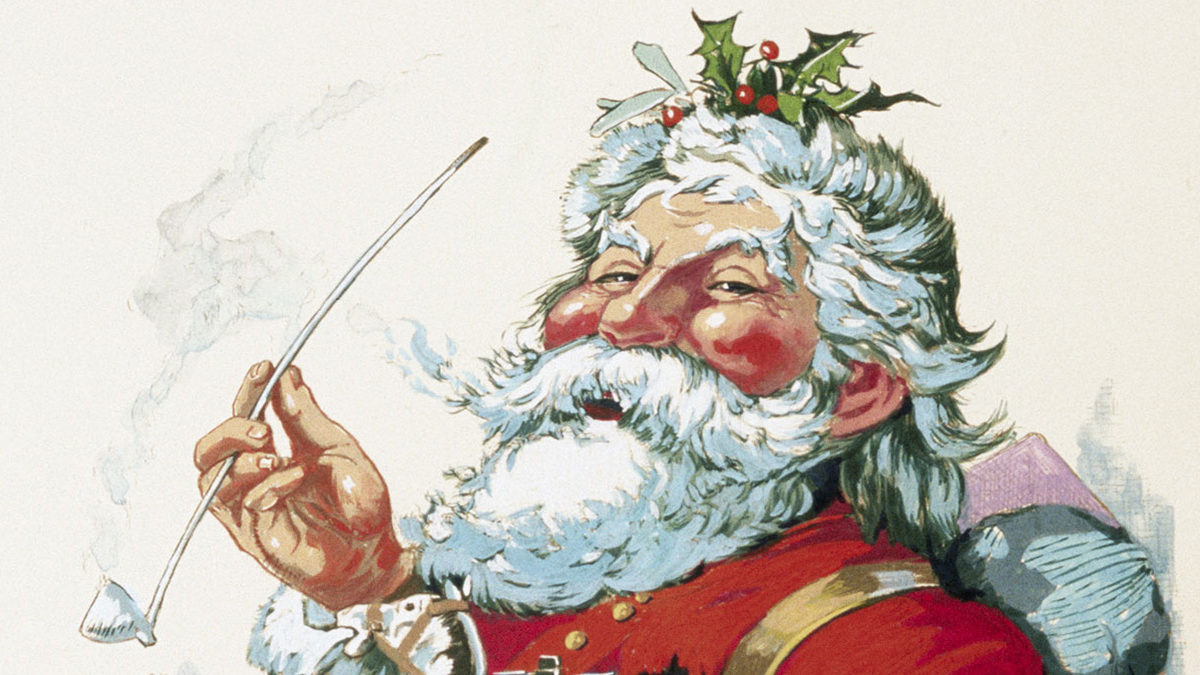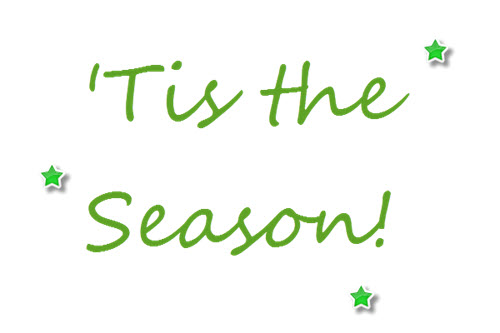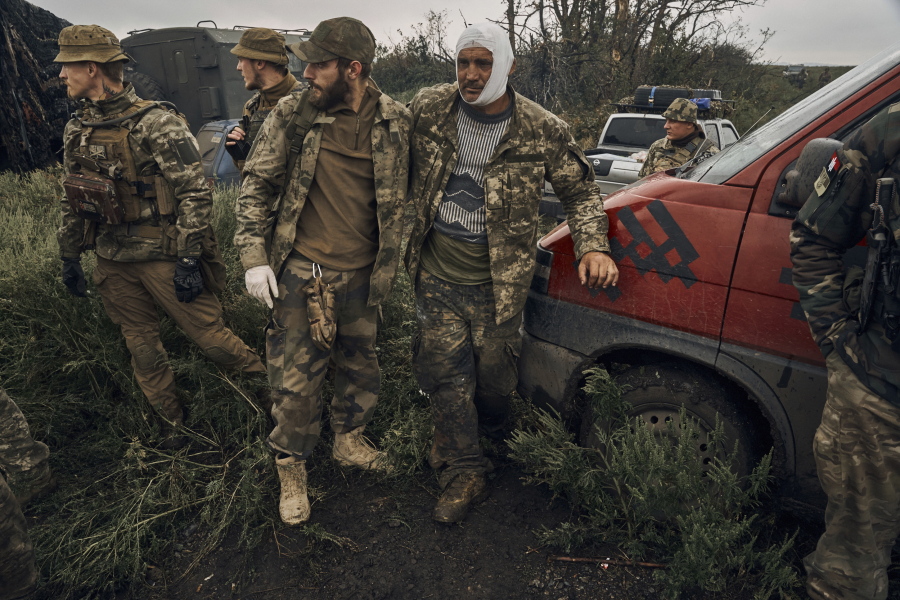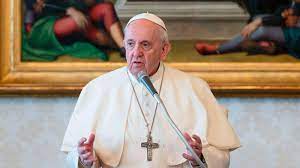뉴스&스피킹(영자신문)
하루 10분이면 영어에 대한 두려움을 극복하고 누구나 유창하게 영어를 구사하실 수 있습니다.
-
 VOA Learning English Presents 'A Visit from St. Nicholas' In 1822, an American professor named Clement Clarke Moore wrote a poem that redefined the image of Saint Nicholas. It was called “Account of a Visit from Saint Nicholas.” He did not expect it to be published. He wrote it as a Christmas present for his young children. In recent years, experts have questioned whether Moore actually wrote the poem.
VOA Learning English Presents 'A Visit from St. Nicholas' In 1822, an American professor named Clement Clarke Moore wrote a poem that redefined the image of Saint Nicholas. It was called “Account of a Visit from Saint Nicholas.” He did not expect it to be published. He wrote it as a Christmas present for his young children. In recent years, experts have questioned whether Moore actually wrote the poem.
Some believe it was written by Henry Livingston, a map maker in New York who wrote and published funny poems in his spare time.
But whoever wrote this classic poem, it has since become a favorite around the world. This poem combines the traditions of Santa Claus, seasonal decorations and gift-giving that have come to define Christmas in America.
We give you the staff of Learning English reading Clement Clarke Moore’s poem, popularly known as “’Twas the Night Before Christmas.”
‘Twas the night before Christmas, when all through the house
Not a creature was stirring, not even a mouse.
The stockings were hung by the chimney with care,
In hopes that Saint Nicholas soon would be there.
The children were nestled all snug in their beds,
While visions of sugar plums danced in their heads.
And mamma in her ‘kerchief, and I in my cap,
Had just settled our brains for a long winter’s nap.
When out on the lawn there arose such a clatter,
I sprang from the bed to see what was the matter.
Away to the window I flew like a flash,
Tore open the shutters and threw up the sash.
The moon on the breast of the new-fallen snow
Gave lustre of mid-day to objects below.
When, what to my wondering eyes did appear,
But a miniature sleigh, and eight tiny reindeer.
With a little old driver, so lively and quick,
I knew in a moment it must be Saint Nick.
More rapid than eagles his coursers they came,
And he whistled, and shouted, and called them by name!
"Now Dasher! Now, Dancer! Now, Prancer and Vixen!
On, Comet! On, Cupid! On Donder and Blitzen!
To the top of the porch! To the top of the wall!
Now dash away! Dash away! Dash away all!"
As dry leaves that before the wild hurricane fly,
When they meet with an obstacle, mount to the sky.
So up to the house-top the coursers they flew,
With the sleigh full of toys, and Saint Nicholas, too.
And then, in a twinkling, I heard on the roof
The prancing and pawing of each little hoof.
As I drew in my head, and was turning around,
Down the chimney Saint Nicholas came with a bound.
He was dressed all in fur, from his head to his foot,
And his clothes were all tarnished with ashes and soot.
A bundle of toys he had flung on his back,
And he looked like a peddler, just opening his pack.
His eyes -- how they twinkled! His dimples how merry!
His cheeks were like roses, his nose like a cherry!
His droll little mouth was drawn up like a bow,
And the beard of his chin was as white as the snow.
The stump of a pipe he held tight in his teeth,
And the smoke it encircled his head like a wreath.
He had a broad face and a little round belly,
That shook when he laughed, like a bowlful of jelly!
He was chubby and plump, a right jolly old elf,
And I laughed when I saw him, in spite of myself!
A wink of his eye and a twist of his head,
Soon gave me to know I had nothing to dread.
He spoke not a word, and went straight to his work,
Filled all the stockings, then turned with a jerk.
And laying his finger aside of his nose,
And giving a nod, up the chimney he rose!
He sprang to his sleigh, to his team gave a whistle,
And away they all flew like the down of a thistle.
But I heard him exclaim, ‘ere he drove out of sight,
"Happy Christmas to all, and to all a good-night!"
Dorothy Gundy produced the video.View -
 'Tis the Season! And now, Words and Their Stories, from VOA Learning English.
'Tis the Season! And now, Words and Their Stories, from VOA Learning English.
Today we talk about the word “season.” We use this word in many different ways.
“Season” can refer to one of the four parts of the year. For example, Washington, D.C. is in a part of the United States that has four seasons: winter, spring, summer, and autumn. Some parts of the U.S. do not have four seasons.
“Season” can also describe the periods marked by warmth and growth or cold weather and falling leaves. For example, when the weather becomes warmer and days are lighter longer, the growing season begins for some plants. When the weather gets colder and the days darker, the hibernation season begins for some animals.
We also use “season” to describe periods that are only related to the weather. For example, some areas of the world have rainy seasons and dry seasons. Some parts of the U.S. have tornado season. And in other parts of the world there are monsoon seasons.
“Season” can also refer to the time before and during a major holiday. December is a busy holiday season in many parts of the world. Holidays include Christmas, Hanukkah, Kwanzaa, the Feast of Our Lady of Guadalupe and the Winter Solstice. December is often a time to take a break from work and spend time with loved ones.
Speaking of Christmas, when we say ‘tis the season we are talking about something dealing with this holiday – its good side and its not-so-good side. For example, let’s say I give a co-worker a big box of homemade cookies. They might say to me, “Thanks! But why are you giving me so many cookies?” I can answer, “’Tis the season!”
Here is another example. If I go out to a store and it is packed with holiday shoppers, I could complain to a friend. And they could respond, “Well, ‘tis the season!” What they really mean is this: At this time of the year, stores are usually very busy with Christmas shoppers.
In fact, Christmas is like open season on shopping deals. “Open season on” something means that it is being hunted, targeted, or in this case … bought.
“Open season” also describes a period of time when a particular activity or opportunity is unrestricted. It is widely available. This term probably comes from hunting. Hunting traditionally has many restrictions. People can hunt only at certain times of the year and even then, there are restrictions on which animals and how many you can hunt. Fishing too has similar restrictions. But if it is open season, there are few restrictions.
As in our earlier shopping example, we can use this term for just about anything that is targeted with few restrictions. When talking about the best times to travel, for example, it is a good idea to travel off-season. If few people are traveling, it is a good time to find cheap air travel, hotels, and rental cars. It is open season on travel deals.
And like hunting season, we can have other “seasons” too. For example, beach areas are popular during tourist season. And people with allergies probably do not like hay fever season or allergy season.
So, “season” can simply mean a time of the year marked by a special activity. Sports seasons, for example, are popular with fans of sports.
We also have different seasons in our lives: Our time as children, going off to college, becoming parents, helping our aging parents, starting new careers or starting retirement. These are all different seasons of life. And they all have different aspects to enjoy and to be thankful for.
And that’s the end of this Words and Their Stories. Until next time …
I’m Anna Matteo.View -
 Ukraine's Army Struggles with Mental Effects of Combat On a rainy November day in a nearby village, Dmytro, a 24-year-old soldier, talks with his unit's stress control group leader. He is a man named Serhii Rostikov. The Russians occupied the village in 2022. The two men walk and talk among damaged houses.
Ukraine's Army Struggles with Mental Effects of Combat On a rainy November day in a nearby village, Dmytro, a 24-year-old soldier, talks with his unit's stress control group leader. He is a man named Serhii Rostikov. The Russians occupied the village in 2022. The two men walk and talk among damaged houses.
Rostikov said soldiers decide for themselves whether to seek mental health support. However, other specialists said unit commanders could make recommendations if they see signs for concern.
"After the artillery shelling, I developed a fear of going back to (combat) positions," said Dmytro. He is with the 21st Separate Mechanized Brigade.
He told Reuters that he reached out to his former group leader Rostikov for help. After working together, Rostikov sent Dmytro to rehabilitation. Dmytro said, “…I have no fear now and can easily go back to a combat position. I think we need psychologists, because soldiers suffer from a lot of stress."
Many soldiers who seek psychological support return to battle after short breaks. Some more serious cases are sent away from the front for more treatment.
DJ later said he had been kept away from combat for further treatment. Dmytro has rejoined his unit.
The Ukrainian military has tried to recruit more people for psychological support.
Ukraine's armed forces declined to answer questions about efforts to get support workers. It also did not release how many soldiers had been treated for psychological conditions since the start of the invasion. Such details are often treated as military secrets.
I’m Anna Matteo.View -
 Pope Approves Blessings for Same-sex Couples Pope Francis officially approved letting Catholic clergy bless same-sex couples, the Vatican announced Monday.
Pope Approves Blessings for Same-sex Couples Pope Francis officially approved letting Catholic clergy bless same-sex couples, the Vatican announced Monday.
The move is a complete change in church policy that aims to make the church more welcoming while continuing its ban on gay marriage.
Some have cheered the Vatican statement as a step to break down discrimination in the Catholic Church. But LGBTQ+ supporters say the policy means that the church still considers gay couples as less than heterosexual partners.
The Vatican document expands on a letter that Francis sent to two conservative cardinals last October. In that letter, Francis suggested such blessings could be offered if they were not seen or mistaken as marriage ceremonies.
The new document repeats that condition and reaffirms that marriage is a lifelong union between a man and a woman. It stresses that the blessings must not be tied to any Catholic celebration or religious service and should not be performed at the same time as a marriage ceremony. Also, the blessings cannot use ceremonial acts, clothing or movements that belong in a wedding.
But it says requests for such blessings for same-sex couples should not be denied. “For, those seeking a blessing should not be required to have prior moral perfection,” it said.
The document added, “There is no intention to legitimize anything, but rather to open one’s life to God, to ask for his help to live better…”
The Vatican holds that marriage is a union between man and woman. As a result, it has long opposed same-sex marriage and considers homosexual acts to be “disordered.” Nothing in the new document changes that teaching.
In the new document, the church says a blessing is about helping people increase their trust in God. “It is a seed of the Holy Spirit that must be nurtured, not hindered,” it said.
It stresses that people in “irregular” unions of extramarital sex — gay or straight — are in a state of sin. But that should not keep them from God’s love or mercy. “Even when a person’s relationship with God is clouded by sin, he can always ask for a blessing, stretching out his hand to God,” the document said.
The document is the latest attempt by the Pope to welcome gay Catholics. In 2013, he said, “Who am I to judge?” when asked about a gay clergy. Earlier this year, he told The Associated Press that “being homosexual is not a crime.”
Reactions to the announcement
Ramón Gómez oversees human rights for the Movement for Homosexual Integration and Liberation in Chile. He said the statement was a step toward breaking down discrimination in the church and could help LGBTQ+ people in countries where even civil unions are not legal. But he said the document “gives the signal that same-sex couples are inferior to heterosexual couples.”
The Reverand James Martin supports welcoming LGBTQ+ Catholics. He praised the new document as a “huge step forward” and a change from the Vatican’s 2021 policy.
“Along with many Catholic priests, I will now be delighted to bless my friends in same-sex marriages,” he said in an email.
In Germany, clergy have been blessing same-sex couples for years. And the head of the German Bishops Conference welcomed the document.
Bishop Georg Baetzing said, “This means that a blessing can be given to couples who do not have the opportunity to marry in church, for example due to divorce, and to same-sex couples.”
In the United States, the Reverand John Oesterle, a Catholic priest in Pittsburgh, said many priests would probably not be open to offering such a blessing, but he welcomed Francis’ action.
He said, “When I was growing up, the assumption was that God made everyone straight. What we have learned is that is not true. In accepting people as God made them, and if Jesus’ primary teaching is we should love and serve one another in the community, I think that’s what gives Pope Francis the openness to God’s presence in those relationships.”
Traditionalists, however, expressed shock and anger. Luigi Casalini of Messa in Latino (Latin Mass) blog wrote that the document did not follow the church’s teachings. “The church is crumbling,” he wrote.
University of Notre Dame theologian Ulrich Lehner was also concerned. Lehner called it: “The most unfortunate public announcement in decades.” He said it could lead to division in the church.
I'm Mario Ritter, Jr.View -
 2023: A Big Year for Artificial Intelligence Artificial intelligence (AI) became a popular subject in 2023. Still, the technology has a long way to go to meet people’s futuristic expectations of human-like machines.
2023: A Big Year for Artificial Intelligence Artificial intelligence (AI) became a popular subject in 2023. Still, the technology has a long way to go to meet people’s futuristic expectations of human-like machines.
ChatGPT was central to this year’s attention on AI. The chatbot showed the world recent developments in computer science, although not everyone understood quite how it works or what to do with it.
AI scientist Fei-Fei Li suggested that 2023 would be remembered for the great changes in technology as well as the public awakening. It was a year for people to figure out “what this is, how to use it, what’s the impact — all the good, the bad and the ugly,” she added.
Concerns over AI
The first AI concerns of 2023 began soon after New Year’s Day. That is when classrooms reopened and schools from Seattle to Paris started blocking ChatGPT. Students were already asking the chatbot — released in late 2022 — to write papers and answer take-home tests.
AI large language models behind technology such as ChatGPT work by predicting the next word in a sentence. The models make such predictions after having “learned” the structure of a huge number of human-written works. The large language models often get facts wrong. But the results appeared so natural that it created interest in the next AI developments and possible uses for trickery and deception.
Worries grew as this new group of generative AI tools produced not just words but also images, music and voices. They seemed to threaten the jobs of anyone who writes, draws, and creates music and computer languages. Concerns about AI tools fueled strikes by Hollywood writers and actors and legal disputes from artists to writers.
Some of the most respected AI scientists warned that the technology’s progress was marching toward outsmarting humans and possibly threatening their existence. Yet other scientists called the warnings overblown and brought attention to more immediate risks.
By spring, AI-created videos known as deepfakes had appeared in U.S. election campaigns. Deepfakes are videos that contain realistic images but with digital changes to people’s actions and speech. One deepfake falsely showed Donald Trump embracing the nation’s former top infectious disease expert. The technology made it increasingly difficult to tell the difference between real and fake videos of the wars in Ukraine and Gaza.
By the end of the year, the AI crisis affected ChatGPT’s maker, OpenAI. The San Francisco-based company led by chief executive Sam Altman was nearly destroyed by disagreements over its mission.
AI debates also led to new laws from the European Union and consideration from others, including the United States Congress.
Too much excitement?
AI products released in 2023 have brought technology achievements not possible in earlier times. But the market research company Gartner says they arrive with “inflated expectations” and “massive claims” about its abilities.
Gartner analyst Dave Micko said leading AI developers are pushing the latest technology with their current line of products, including search engines and workplace productivity software.
He said, “As much as Google and Microsoft and Amazon and Apple would love us to adopt the way that they think about their technology and that they deliver that technology, I think adoption actually comes from the bottom up.”
It is easy to forget that this is not the first appearance of AI in business. The technology has been used to help guide self-driving cars, compare objects and individual faces, and recognize speech in software like Siri and Alexa.
In 2011, Tom Gruber launched Siri, which was bought and used by Apple in the iPhone. At that time, it was the only major use of AI that people had ever experienced.
But Gruber believes what’s happening now is the “biggest wave ever” in AI, launching new possibilities as well as dangers.
The dangers could come fast in 2024. Major national elections in the U.S., India and elsewhere could get flooded with AI-created deepfakes.
In the longer term, AI technology’s rapidly improving language, visual sensing and step-by-step planning abilities could create a kind of digital assistant — but only if given access to the “inner loop of our digital life stream,” Gruber said.
“They can manage your attention as in, ‘You should watch this video. You should read this book. You should respond to this person’s communication,’” Gruber said. He added, “That is what a real executive assistant does. And we could have that, but with a really big risk of personal information and privacy.”
I’m John Russell. And I’m Ashley Thompson.View

